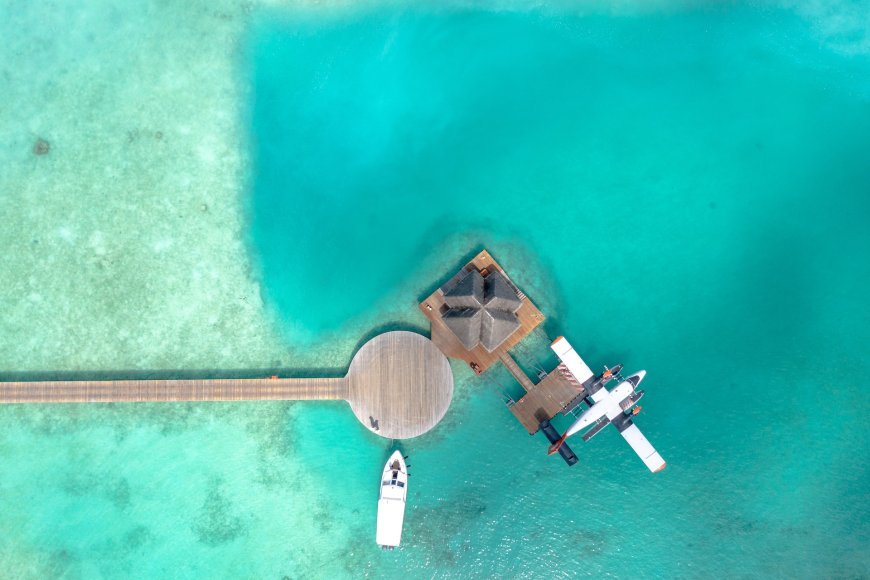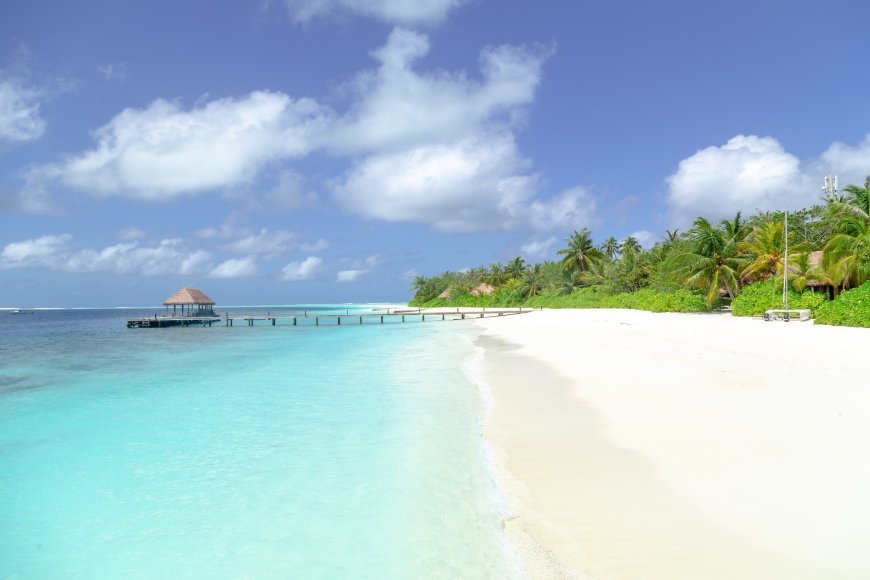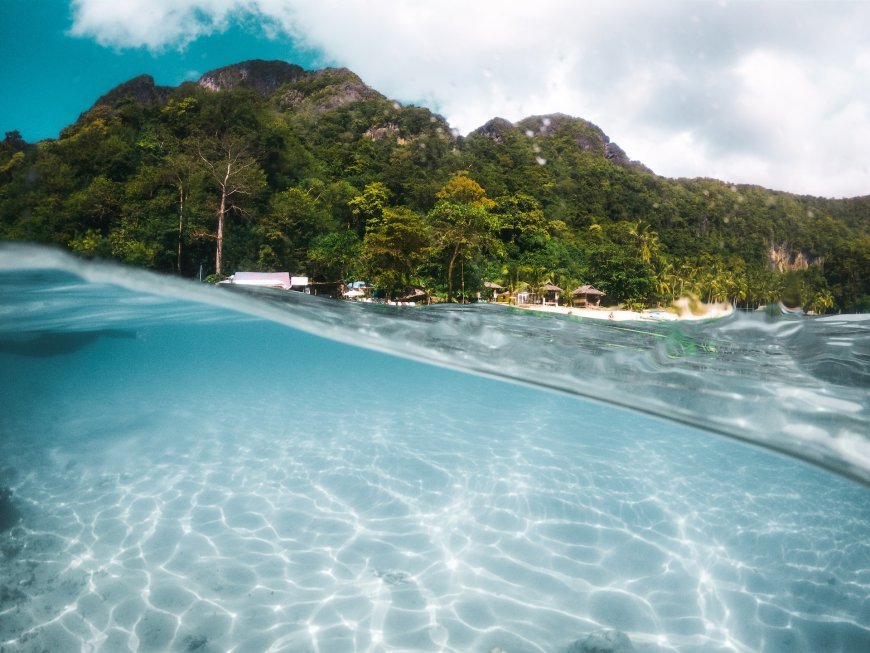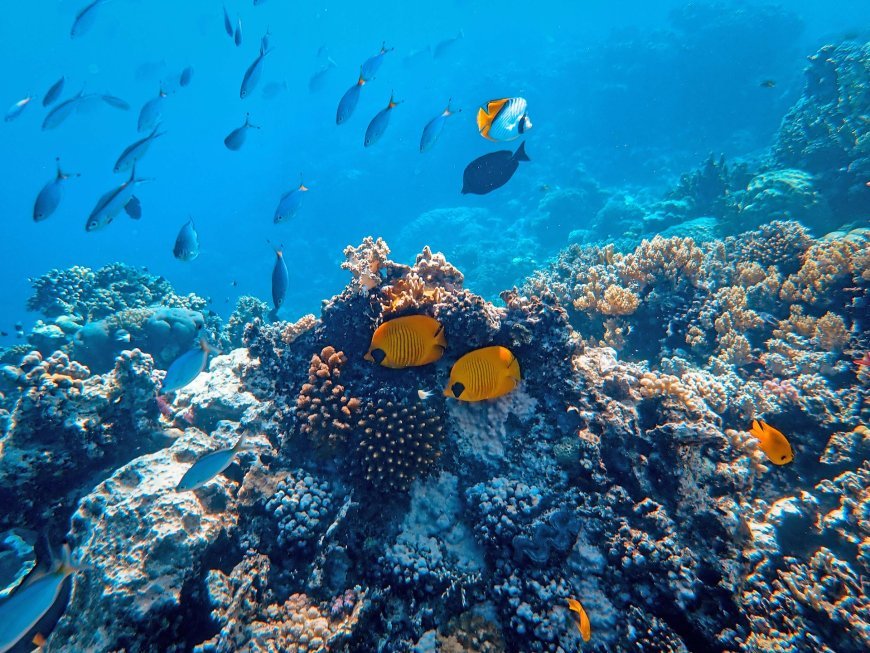Unveiling the Vulnerability: The Maldives, Earth's Lowest-Lying Country
Explore the Maldives, the lowest-lying country on Earth, and discover its breathtaking beauty, unique challenges posed by rising sea levels, and the urgent need for climate action. Dive into the world of turquoise waters, coral reefs, and idyllic islands.

Welcome to the Maldives, a tropical paradise nestled in the Indian Ocean. Its stunning white sandy beaches, crystal-clear turquoise waters, and vibrant coral reefs make it a dream destination for travelers seeking natural beauty and tranquility. However, beneath its picturesque surface lies a growing concern - the vulnerability of being the lowest-lying country on Earth. In this article, we will delve into the unique challenges faced by the Maldives due to rising sea levels and explore the urgent need for climate action.
The Pristine Beauty of the Maldives

The Maldives is renowned for its unparalleled natural beauty. With over 1,000 coral islands, each adorned with palm trees and surrounded by vibrant marine life. It is a haven for snorkelers, divers, and beach lovers. The turquoise lagoons and powdery white sand create a postcard-perfect setting that attracts tourists worldwide.
The archipelago is home to some of the world's most stunning resorts, where guests can unwind in luxurious overwater villas and indulge in spa treatments overlooking the glistening ocean. The Maldives offers a sense of serenity and escape from the hustle and bustle of daily life, making it a favorite destination for honeymooners, adventure seekers, and nature enthusiasts alike.
The Threat of Rising Sea Levels

As enchanting as the Maldives may be, it faces a formidable threat - rising sea levels. With an average ground level of just 1.5 meters above sea level, the islands are highly vulnerable to the impacts of climate change. As global temperatures rise, polar ice caps melt, causing the world's oceans to expand. This phenomenon directly endangers the Maldives, making them prone to frequent flooding and coastal erosion.
The Maldivian government has been monitoring the rise in sea levels and its potential consequences for years. Scientific studies have predicted that if global warming continues at its current pace, a significant portion of the Maldives could be underwater within the next century. This sobering reality has prompted the country to take action and advocate for climate change mitigation globally.
The Urgent Need for Climate Action

The Maldives has become a symbol of the fight against climate change. Its government and people have been at the forefront of advocating for climate action on a global scale. Recognizing the severity of the situation, they have implemented various adaptation strategies to protect their islands and way of life. These strategies include building seawalls, implementing eco-friendly tourism practices, and investing in renewable energy sources.
The Maldives has also been active in international climate negotiations, urging major greenhouse gas emitters to reduce carbon emissions. The country's leaders have highlighted the urgent need for countries to limit global warming to well below 2 degrees Celsius, as outlined in the Paris Agreement. The Maldives is a powerful voice for other low-lying nations facing similar challenges.
Sustainable Tourism and Environmental Conservation

Sustainable tourism plays a crucial role in preserving the Maldives' delicate ecosystem. By choosing eco-friendly resorts, supporting local initiatives, and practicing responsible snorkeling and diving, travelers can contribute to conservation efforts. The Maldivian government has also taken significant steps in establishing marine protected areas and promoting responsible tourism practices to ensure the long-term sustainability of the islands.
One example of sustainable tourism in the Maldives is the development of eco-resorts that operate in harmony with the natural environment. These resorts minimize their carbon footprint through renewable energy, water conservation measures, and responsible waste management practices. They also provide educational programs for guests to learn about the importance of environmental conservation and how to minimize their impact while enjoying the Maldives' natural wonders.
Embracing the Maldives' Fragile Paradise

To protect the Maldives and its unique biodiversity, collective action is required. Individuals, communities, governments, and international organizations must collaborate to reduce carbon emissions, promote sustainable development, and raise awareness about the impacts of climate change. By embracing the fragility of this paradise and taking concrete steps, we can help secure the Maldives' future for generations to come.
Travelers can make a positive difference by choosing sustainable travel options, supporting local conservation projects, and spreading awareness about the vulnerability of the Maldives and other low-lying countries. By advocating for more robust climate policies and participating in carbon offset programs, we can all play a part in safeguarding this precious destination and the countless species that call it home.
The Maldives is a breathtaking travel destination and a stark reminder of the urgent need to address climate change. Its vulnerability as the lowest-lying country on Earth demands immediate action. By understanding the challenges faced by the Maldives, supporting sustainable tourism practices, and advocating for climate action, we can contribute to preserving this fragile paradise and inspire positive change on a global scale. Let us unite to protect the Maldives and the future of our planet.
Frequently Asked Questions (FAQs):
Q1: Why is the Maldives considered the lowest-lying country on Earth?
A1: The Maldives is considered the lowest-lying country on Earth because its average ground level is just 1.5 meters above sea level. The country is made up of a chain of coral islands, which are highly vulnerable to rising sea levels caused by climate change.
Q2: What are the main challenges the Maldives faces due to rising sea levels?
A2: Rising sea levels pose several challenges to the Maldives. These include increased coastal erosion, frequent flooding, saltwater intrusion into freshwater sources, and the potential displacement of communities. The country's delicate ecosystem, including its coral reefs, is also at risk of damage from warmer and more acidic ocean waters.
Q3: What is being done to address the impacts of climate change in the Maldives?
A3: The Maldives has implemented various adaptation strategies to address the impacts of climate change. These include building seawalls and other coastal protection measures, implementing eco-friendly tourism practices, investing in renewable energy sources, and advocating for climate change mitigation on a global scale.
Q4: How can sustainable tourism help protect the Maldives' environment?
A4: Sustainable tourism plays a crucial role in preserving the Maldives' delicate ecosystem. Travelers can minimize their environmental impact by choosing eco-friendly resorts, supporting local initiatives, and practicing responsible snorkeling and diving. Additionally, sustainable tourism practices promote the conservation of natural resources and support local communities.
Q5: Are there any efforts to conserve the Maldives' marine biodiversity?
A5: The Maldivian government has established marine protected areas and conservation initiatives to preserve the country's rich marine biodiversity. These efforts aim to safeguard coral reefs, protect endangered species, and promote sustainable fishing practices. Visitors can contribute to these conservation efforts by respecting marine life and supporting local conservation organizations.
Q6: How can individuals contribute to protecting the Maldives from climate change?
A6: Individuals can contribute to protecting the Maldives by choosing sustainable travel options, reducing their carbon footprint, supporting local conservation projects, and spreading awareness about the vulnerability of low-lying countries. Participating in carbon offset programs and advocating for stronger climate policies are also impactful ways to make a difference.
Q7: Is it safe to travel to the Maldives, considering the challenges it faces?
A7: The Maldives remains a safe travel destination. While the country faces climate change challenges, resorts, and local authorities have taken measures to ensure the safety and well-being of tourists. It is always recommended to stay informed about weather conditions and follow any guidelines provided by the resort or local authorities during your visit.
Q8: How can I learn more about the Maldives' environment and conservation efforts?
A8: You can learn more about the Maldives' environment and conservation efforts through various channels. Research reputable websites, read travel articles, and explore resources from environmental organizations focused on the region. Additionally, engaging with local guides and organizations during your visit can offer valuable insights into the country's conservation initiatives.







